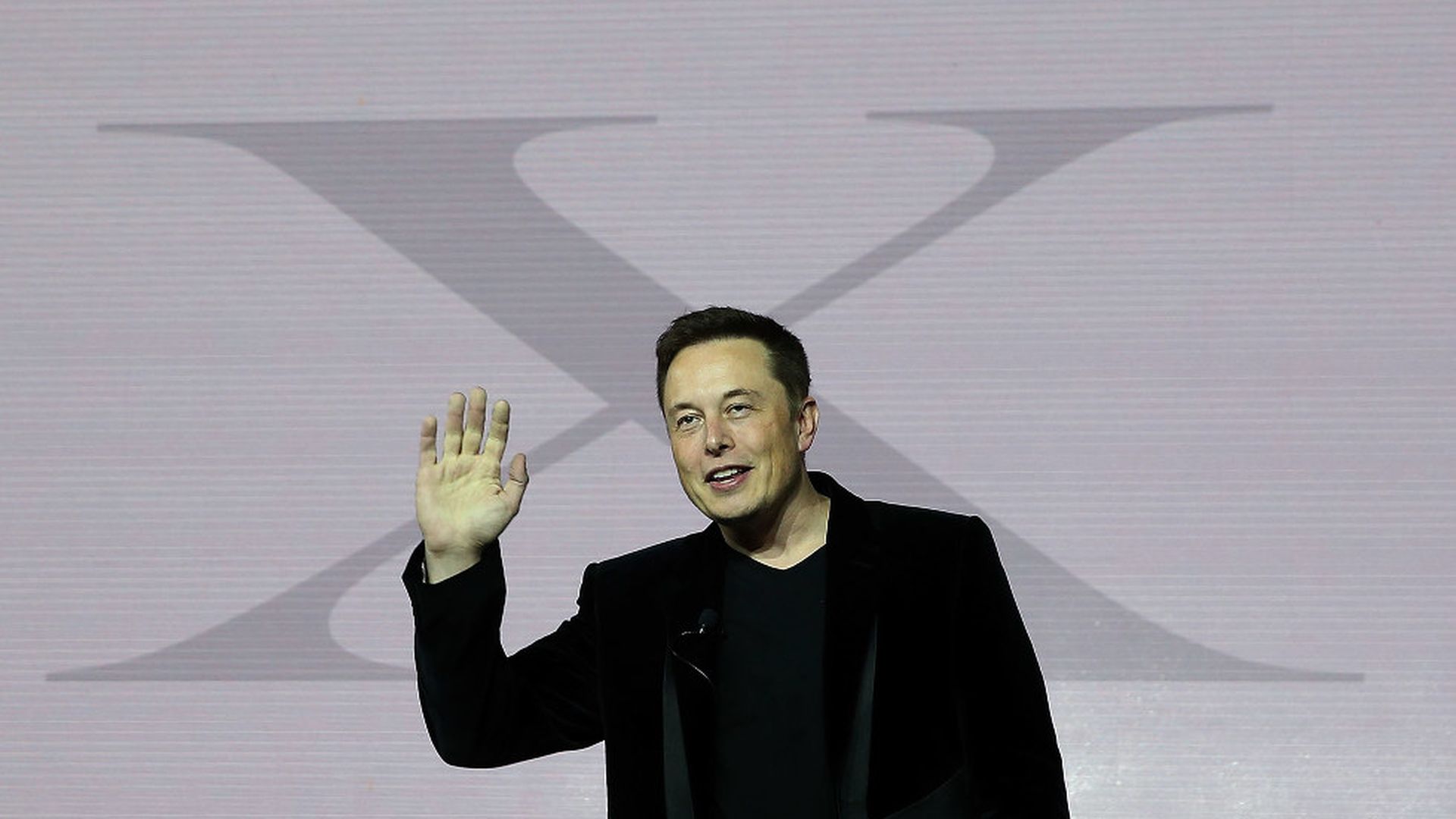Elon Musk's mean Twitter persona
Add Axios as your preferred source to
see more of our stories on Google.

The on-stage Musk, in 2015 (Photo: Justin Sullivan / Getty Images)
Until last week, it's safe to say that very few people had heard of Jarrett Walker, a public transit consultant from Portland. Then, in a piece at Citylab, Walker had the temerity to take on Tesla CEO Elon Musk for his recently stated aversion to public transport with other people. "You're an idiot," Musk tweeted in response — then, "Meant to say sanctimonious idiot."
Why it matters: Musk is the picture of Silicon Valley smooth at his electric car unveilings and space program announcements. But not so much on Twitter, where he — one of the world's most respected entrepreneurs — can seek to humiliate people who challenge him or, in his view, cast him in an adverse light.
When his targets have pointed out that his facts are wrong, Musk has doubled down. Some examples:
- On Dec. 14, Musk rebuked Wired when it quoted him on his attitude toward public transport. "This is why I stopped following Wired long ago. There are way better tech pubs out there," he tweeted.
- In August, Musk attacked a WSJ report on internal debate at Tesla over his push to develop self-driving technology: "WSJ has been laboriously negative for over a decade. I'm surprised they haven't bored their readers to death by now."
- The same day, he went after the WSJ's Rolfe Winkler, who had tweeted about a money raise by a Musk AI startup. "Neuralink is not raising money," Musk said. How then to explain an SEC report on the funding, Winkler tweeted back. Musk replied, "Let me check on that for you. Found the answer right here: 🔥💩"
This behavior is not new: In a 2013 attack on NYT reporter John Broder, Musk foreshadowed President Trump's current signature phrase: "NYTimes article about Tesla range in cold is fake," he tweeted.
Tesla did not respond to a request for comment prior to publication. Afterward, a spokesman emailed, "It is incredibly misleading to cherry pick a few tweets out of 4,000 to argue that they show Elon is mean, especially when many are simply pointing out false or misleading information. Did you read Tesla's response to the Broder piece [here]? This was not foreshadowing Trump's use of "fake news." This was a fabricated story that we debunked with facts."
How to explain the divergence in Musk's public personas? Among the possibilities:
- It's his psychology: Michael Maccoby, a Washington, DC-based anthropologist and psychoanalyst, told Axios that Musk is a classic example of a productive narcissist — a renowned entrepreneur and visionary who is changing the world, even though he may lash out on Twitter when challenged. "Creative people are likely to be attacked by those who feel threatened by their innovations," he said. "Some productive narcissists respond to attacks. Others are more detached. Some productive narcissists like FDR, Reagan and Lincoln have a sense of humor about attacks."
- He's doing it on purpose: In a paper published in May, a group of UK and US researchers wrote that people project themselves differently depending which social platform they are on, whether Facebook, Instagram, LinkedIn or Twitter.Nishanth Sastry, a co-author of the paper and a professor at King's College in London, told Axios that, generally speaking, people "very carefully stage-manage" their social media persona. "We want people to perceive us one way or a different way," he said.
If Musk's Twitter act is deliberate, it's a tricky calibration, Sastry said. Most of us have grown up learning our "social decorum principles" face to face, he said, in interaction with our parents, our teachers and our friends. When it comes to older people especially, Sastry said, "what we've imbibed culturally is entirely in an offline context." When it comes to communicating online, we can thus say the wrong thing.
Our thought bubble: Judging by the comments underneath Musk's outbursts, he resonates authenticity to at least some of his faithful, in the same way that Trump's broadsides do with his base. This was the case the day after Christmas, when he tweeted this note: "Wanted again to send a note of deep gratitude to Tesla owners WW for taking a chance on a new company that all experts said would fail. So much blood, sweat & tears from the Tesla team went into creating cars that you'd truly love. I hope you do. How can we improve further?"
With his outbursts, Musk may simply think he's funny. And there are signs that he is not always at ease with the rough treatment, depending on who's challenging him.
- After his exchange with Walker, the transit consultant, for example, Paul Krugman, the Nobel laureate and NYT columnist, tweeted at him: "Elon Musk's idea of a cogent argument: 'You're an idiot.'"
- To which Musk replied: "I would only call someone an idiot if people were mistakenly under the impression that the person was smart."
- In other words, Musk, while defending himself, was not prepared to give Krugman the brusque treatment as he had Walker.
One fun thing: After sales of his book shot up, Walker himself does not seem upset: "It's all very funny to me," he said, "and I hope it is to you."
